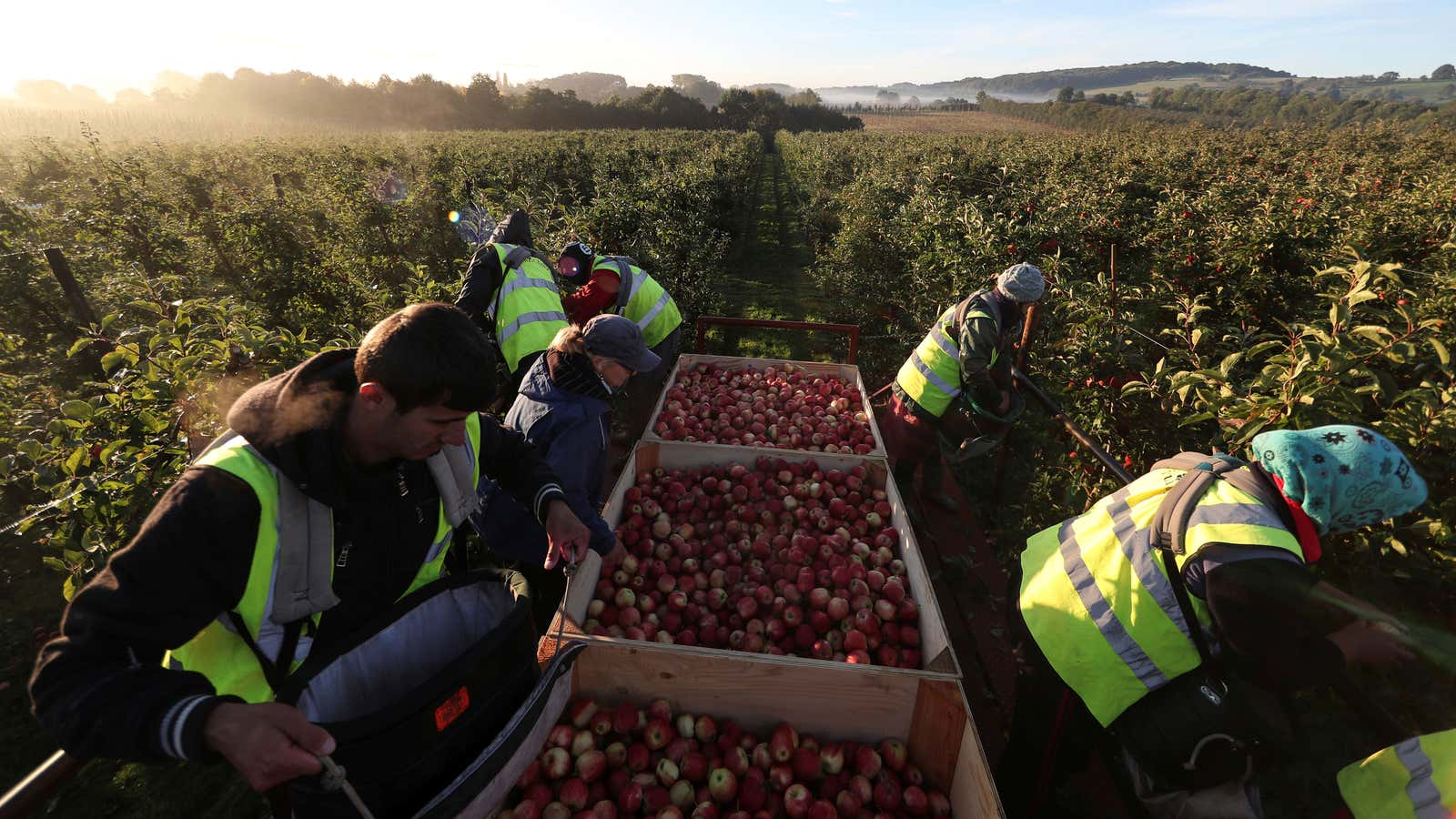Brexit talks have yet to even begin, but migrants aren’t waiting around for the UK to fully exit the European Union. In fact, they’re leaving the country in droves.
Net migration, the difference between the number of immigrants entering the UK and those leaving, was estimated to be 248,000 in 2016—down 84,000 from 2015. The drop was largely driven by a “statistically significant increase” in the number of migrants leaving the country, according to the Office of National Statistics.
The latest migration estimates, which were the lowest recorded net migration since 2014, will likely be a boost prime minister Theresa May. For the upcoming snap election, the prime minister reaffirmed her party’s commitment to reduce net migration to the tens of thousands. The Conservatives have consistently missed that target after making the same promise in the 2010 and 2015 elections. May has claimed that Brexit would help her finally achieve this goal.
She may have a point; an estimated 339,000 people left the UK in 2016, an increase of 40,000 from the year before. Those leaving were mostly citizens from within the European Union (EU).
This drop in immigration will likely come with a price. In 2016, the Office for Budget Responsibility forecast that lower migration could end up costing the UK £6 billon ($7.7 billon) a year by 2020-21.
Nonetheless, immigration has consistently ranked among the top five “most important issues“ among British voters. Around three-quarters of people in Britain are currently in favor of reducing immigration. And according to a study published today (May 25), more than half of Britons believe that ethnic minorities threaten their culture.
The figures showed a striking rise in the number of migrants from Eastern Europe leaving the country. An estimated 43,000 migrants from the so-called “EU8” states—the Czech Republic, Estonia, Hungary, Latvia, Lithuania, Poland, Slovakia and Slovenia—left in 2016, an increase of 16,000 from 2015. Immigration from these states was down by 25,000 to 48,000. The drop in the numbers coming into the UK and the sharp increase in those leaving resulted in the smallest net migration from this group of nations since they joined the EU in 2004.
Work remained the number one reason why EU migrants came to the UK, whereas most of the non-EU migrants moved to the UK to study. The majority of migrants arriving to work, had jobs in the UK (an estimated 180,000) before moving (similar to the figure in 2015). There were fewer migrants coming to the UK looking for work—95,000 did so in 2016, down 35,000 from 2015.
Immigration of non-EU migrants was down from 279,000 in 2015 to 264,000 in 2016. While the drop in non-EU migrants was not as substantial as the drop in EU migrants, the ONS notes there was a statistically significant decrease in the number of migrants coming to the UK to study. An estimated 136,000 migrants moved to the UK to study in 2016—a decrease of 32,000 from 2015.




